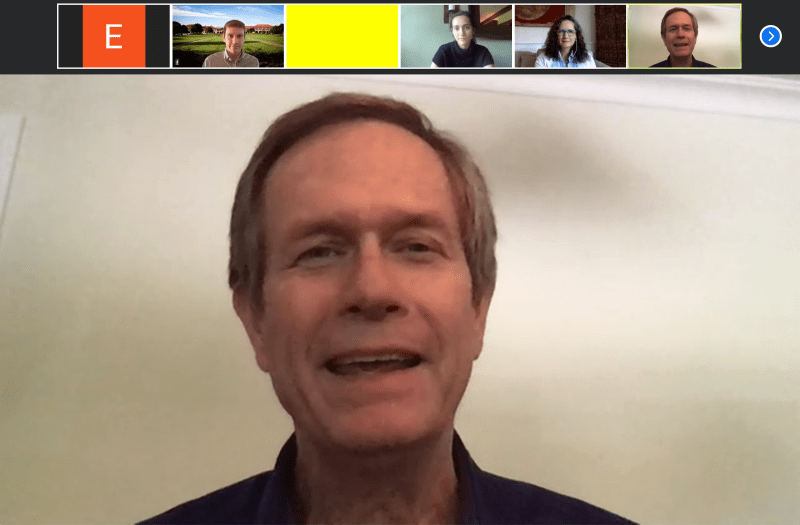Nearly 60 Stanford undergraduates joined Airbnb Chief Ethics Officer Rob Chesnut via Zoom on Tuesday to discuss how tech companies can maintain integrity in times of crisis. The talk was sponsored by the McCoy Family Center for Ethics in Society and the Haas Center for Public Service.
Chesnut’s remarks centered on the importance of trust between leaders and their employees, and the importance of strong leadership during times of uncertainty.
“Integrity is never more important than in times of crisis,” Chesnut wrote in an email to The Daily. “People are isolated, there’s a lot of fear and uncertainty and many people in need. It’s important for leaders of today, and tomorrow, to be thinking about integrity as an integral part of doing business, when times are normal and especially, when they’re not.”
In the Zoom talk, Chesnut discussed his own work as a federal prosecutor, serving as senior vice president of trust and safety and deputy general counsel for eBay and general counsel, then chief ethics officer at Airbnb.
He described an “ethical revolution” currently taking place in the corporate world.
For decades, companies’ sole purpose was to make money, he said.
“What we’ve seen over the last several years is a real shift in how companies are acting and are expected to act,” Chesnut said, citing a blog post by Susan Fowler at Uber that led to the dismissal of co-founder and CEO Travis Kalanick as an example.
He described ethical practices now, amid the COVID-19 pandemic, as more important.
“How you treat people in a time like this, I think, speaks volumes about your character as a leader,” he said. “In crisis, there’s opportunity.”
In addition to founding the trust and safety team at eBay, Chesnut worked for 14 years with the U.S. Department of Justice and is the author of “Intentional Integrity: How Smart Companies Can Lead an Ethical Revolution.”
McCoy Center Associate Director for Undergraduate Outreach Collin Anthony, who facilitated and organized the event, wrote to The Daily that the center reached out to Rob Chesnut “not only because of his written work on the importance of ethics in company culture, but also because the Coronavirus crisis poses unique ethical challenges that leaders in companies must be called upon to answer.”
His talk was followed by a Q&A session, led by computer science undergraduates Dina Safreno ’20 and Priya Chatwani ’20.
Chatwani posed a question about how Airbnb is maintaining integrity in this time of crisis. Chesnut said that while it’s not unethical to lay off people if necessary, leaders should explore other avenues first and be the first to make sacrifices.
“I admire leaders that step up and take a major pay cut or even agree to take no salary, because they’re the ones that can most afford it,” he said, referencing furloughs or asking vendors and suppliers for more flexibility with payment terms as other alternatives.
Chensut said that Airbnb has been considering how all its hosts are affected, ranging from those who earn use the platform to earn extra money from time to time, to those who rely on Airbnb as a source of income.
“What we did was permitted guests to cancel, but we also set up a fund, a $250 million fund, to help hosts at least recoup some of the lost income from the cancellations,” he said. “Airbnb thinks of its stakeholders as its host, its guests, its employees and the communities that it operates in and it tries to balance what the impact of its decisions are on all the stakeholders.”
He told the audience that customers have a big impact, calling out consumer decisions based on price and not values. Recent movements by consumers to make buying decisions that are aligned with the values of the company reflect a step in the right decision, according to Chesnut.
“You play a role too, as a consumer,” he said. “As long as your consumer choices are based solely on the cheapest item, and not the one that is actually made by a company whose values reflect your own, then you’re part of the problem too.”
This article has been updated to reflect that the talk was sponsored by the McCoy Family Center for Ethics in Society and the Haas Center for Public Service.
Contact Esha Dhawan at edhawan ‘at’ stanford.edu.
